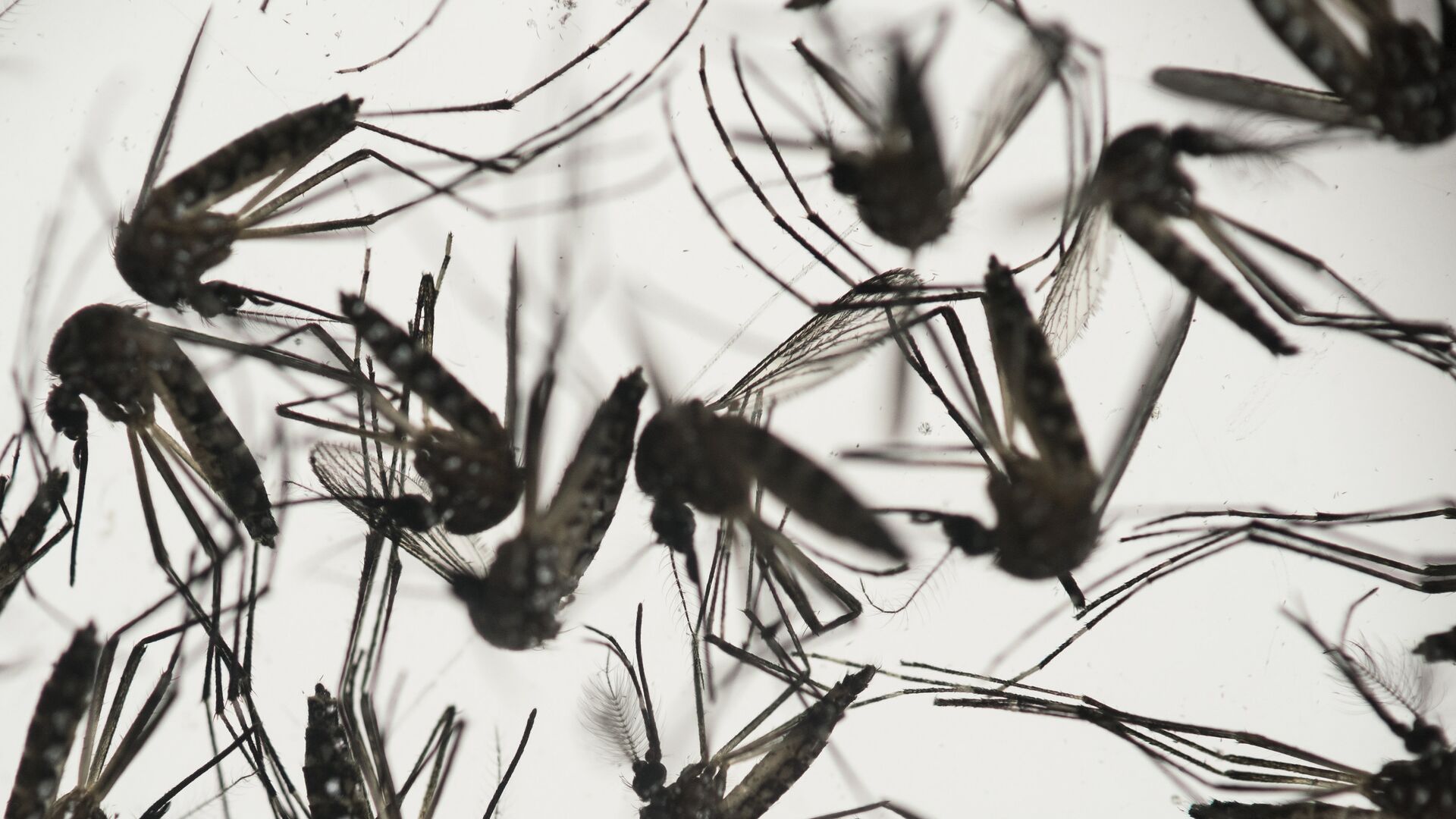US Government Department Gives Green Light to Release Millions of Genetically Modified Mosquitoes
15:24 GMT 10.03.2022 (Updated: 13:32 GMT 06.08.2022)

© AP Photo / Felipe Dana
Subscribe
The project has faced harsh opposition from environmental activists, who have for years argued that there are not enough studies on the potential impact the genetically altered insects could have on the environment and human lives. Several groups have even threatened to file a lawsuit against the EPA in an attempt to scupper the initiative.
Millions of genetically modified mosquitoes could soon be released in the US states of Florida and California as part of a project to control the insects' population, local media reported. British biotechnology company Oxitec, which is behind the initiative, said it had received approval from the US Environmental Protection Agency to release the mosquitoes into the wild.
“Our team is immensely proud to have received yet another milestone approval from the EPA. This expansion of our U.S. efforts reflects the strong partnerships we’ve developed with a large and diverse range of stakeholders at the local, state and national levels”, said Grey Frandsen, CEO of Oxitec.
The project's goal is to reduce the population of Aedes aegypti mosquitoes, which can transmit harmful diseases such as yellow fever, dengue fever, Zika, and chikungunya.
The researchers use the so-called sterile technique – genetically modified male mosquitoes mate with female ones, which then produce offspring, but only "sons" survive, while "daughters" die before reaching maturity. The male mosquitoes inherit the "sterile gene" and pass it on to other generations.
As a result, the female population of the insects drastically reduces. The latter detail is important, as only female mosquitoes carry diseases and bite humans, while male ones don’t. Insects developed by Oxitec fluoresce under certain lights, which allows scientists to identify and track down descendants of the mosquitoes.
The British company said it had run experiments using genetically altered mosquitoes in the Cayman Islands and Brazil, saying they were successful. A pilot project was launched in the United States in Florida last year.
However, opponents of the project have argued that the initiative should be stopped as there has not been enough data on how the modified mosquitoes might affect the environment and humans.
The British company said it had run experiments using genetically altered mosquitoes in the Cayman Islands and Brazil, saying they were successful. A pilot project was launched in the United States in Florida last year.
However, opponents of the project have argued that the initiative should be stopped as there has not been enough data on how the modified mosquitoes might affect the environment and humans.
"This is a destructive move that is dangerous for public health. Once you release these mosquitoes into the environment, you cannot recall them. This could, in fact, create problems that we don’t have already", said Dana Perls, food and technology programme manager at Friends of the Earth, an international network of environmental organisations.
Ms Perls emphasises that there is a concern that the modified insects could create a hybrid species, which could be difficult to eradicate. She also pointed to a lack of widespread, peer-reviewed scientific data from the experiment in Florida last year.
Dana Perls' concern was echoed by Jaydee Hanson, policy director at the Center for Food Safety, who said that the experiment is "unnecessary and even dangerous, as there are no locally acquired cases of dengue, yellow fever, chikungunya or Zika in California".
Meredith Fensom, head of global public affairs at Oxitec, said the company’s project was designed with the environment in mind.
Dana Perls' concern was echoed by Jaydee Hanson, policy director at the Center for Food Safety, who said that the experiment is "unnecessary and even dangerous, as there are no locally acquired cases of dengue, yellow fever, chikungunya or Zika in California".
Meredith Fensom, head of global public affairs at Oxitec, said the company’s project was designed with the environment in mind.
